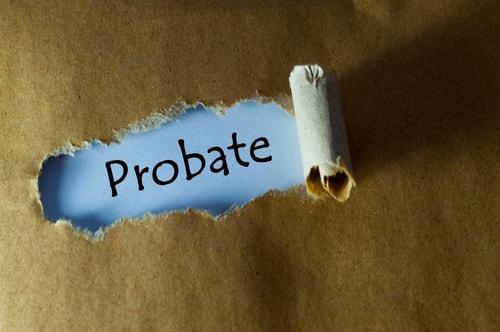Understanding Probate and Whether You Should Avoid It
 As you begin the process of estate planning, you are likely to hear that probate is a time-consuming, expensive series of proceedings that should always be avoided. This idea is prevalent in online resources about estate plans, but there is often little explanation given as to why-other than it can take a long time and costs money. Before you decide whether avoiding probate is necessary, it is important to fully understand the process.
As you begin the process of estate planning, you are likely to hear that probate is a time-consuming, expensive series of proceedings that should always be avoided. This idea is prevalent in online resources about estate plans, but there is often little explanation given as to why-other than it can take a long time and costs money. Before you decide whether avoiding probate is necessary, it is important to fully understand the process.
What Is Probate?
Probate is a judicial process by which an individual proves in court that a deceased person’s will is valid. This process also includes taking inventory of the recently deceased person’s property, appraising the property, and distributing the property according to the will. If there is no will or other estate planning instruments in place, property will be allocated by the probate court in accordance with the state’s laws of intestate succession.
Reasons to Avoid Probate
Many individuals prefer to avoid the probate process if possible because the proceedings typically involve a great deal of paperwork and legal analysis. More importantly, however, probate proceedings can be notoriously slow, meaning that the property in the estate may be effectively held hostage for months while the process works itself out. In addition, attorneys involved in with probate are generally paid from the estate property, and fees can range up to about five percent of the entire estate.
How Can I Avoid Probate?
In some cases-especially those involving relatively simple estates with few open questions-taking steps to avoid probate may actually be counterproductive, costing more in legal fees and preparation expenses than the process itself would have incurred. If you do wish to avoid probate, however, there are several ways to do so.
One of the simplest ways is to create a revocable living trust. In a living trust, the property is technically owned by a trustee, so the property can be transferred to the friends and family to whom you left it without difficulty. Alternatively, some property-such as real estate interests-can be jointly owned by more than one person. This joint ownership can be established, for example, as a joint tenancy with a right of survivorship, which means that property will pass from one owner to the other when the first owner dies.
What Does Avoiding Probate Not Do?
By avoiding probate, you may save time and money in passing your assets on to your heirs, but there are some considerations that must be addressed even if you skip the probate process, including:
- Taxes: Bypassing probate does not mean you can bypass taxes. Gift and estate taxes are not contingent on probate; and
- Creditors: Avoiding probate does not mean you can avoid creditors either. Assets outside of probate can be used to pay claims made by creditors after a property owner’s death. In fact, in many states, creditors have more time to make claims on property that has not gone through probate. When a creditor is informed by the probate court about the proceeding, the creditor has a limited amount of time to make a claim. For property that is not probated, however, creditors are often able to sue for property for up to a year or two later.
Work With an Estate Planning Professional
If you would like to know more about probate, contact a Lombard estate planning attorney for guidance. At A. Traub & Associates, we can help you determine if avoiding probate is in your best interest and how to do so effectively. Call 630-426-0196 for a confidential consultation at any of our three locations today.
Sources:
https://www.law.cornell.edu/wex/probate












